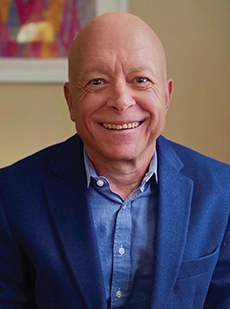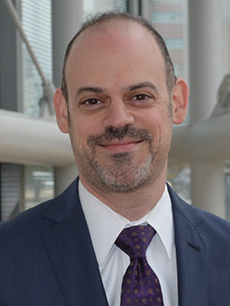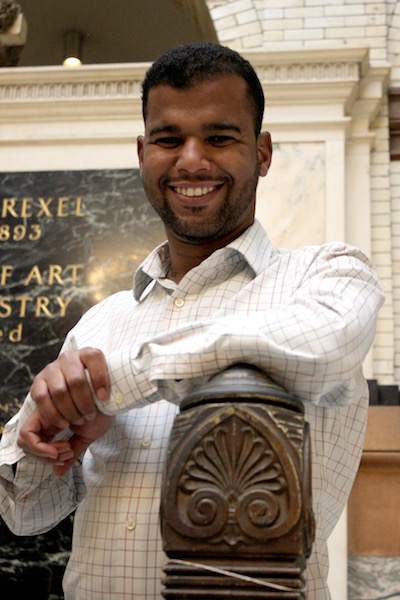 Michel Barsoum
Michel Barsoum
Two Drexel Materials professors and four graduate students have received honors from the College of Engineering for their achievements this year.
Distinguished Professor Michel Barsoum received the College of Engineering award for Outstanding Career Scholarly Research Achievement. Barsoum was the first person to synthesize and characterize the ternary compound Ti3SiC2 and subsequently showed it to be one of over 60 early transition metal ternary carbides and nitrides he dubbed MAX phases.
From MAX phases, Barsoum and his MAX/MXene Research Group were the first to synthesize MXenes, a new family of atomically thin, two-dimensional (2D) transition metal carbides, nitrides, and carbonitrides. These materials have enormous potential in application areas such as energy storage devices, transparent conductive coatings, chemical catalysts, composite reinforcements, and lubricants, among others.
Barsoum's work with MAX phases also led to his finding that most layered solids can, at low strains, deform in a fully reversible, non-linear way known as kinking non-linear elastic (KNE.) This was a remarkable finding, since up to that point it was not believed solids could behave this way. Most recently, Barsoum identified an entirely new micromechanism responsible for KNE, ripplocations. This discovery has dramatic implications and will upend over 50 years of established thought on how layered materials deform, especially at low strains.
Barsoum was recently elected to the Royal Swedish Academy of Engineering Sciences and selected for a Chair of Excellence in Grenoble, France by the Nanosciences Foundation. He is a Fellow of the American Ceramic Society.
 Jonathon Spanier
Jonathon Spanier
Professor Jonathan Spanier received the College of Engineering award for Outstanding Mid-Career Research Achievement. Spanier was recently elected as a Fellow of the American Physical Society, where he was recognized for "outstanding contributions to advancing the understanding of light-matter interactions, ferroelectric phase stability, and nanoscale phenomena in semiconductors, ferroelectrics and related oxides, interfaces and surfaces, including hot carrier behavior, Raman scattering, and photovoltaics."
In work reported this year, Spanier showed how light can transform a ferroelectric insulator into a high-mobility electronic conductor, remarkably, at room temperature. His experiments reveal that the free path, the distance that hot, optically-generated electrons travel before they are scattered by vibrations of the lattice and lose their excess energy is unexpectedly large, orders of magnitude farther than the hopping scale for a usual insulator, and can advance the promise of efficient bulk photovoltaic effect-based solar energy conversion.
Spanier serves as Director of the Centralized Research Facilities and Associate Dean in the College of Engineering.
 Mohamed Alhabeb
Mohamed Alhabeb
PhD students Mohamed Alhabeb (advisor: Yury Gogotsi) and Sankalp Kota (advisor: Michel Barsoum) were both recipients of the Joseph Carleone Endowed Award. This award is a Drexel Endowed Fellowship as a result of philanthropy by Joseph Carleone ('68 '70 '72) to provide financial assistance to graduate students in the College of Engineering. Selection is based on academic merit and financial need.
Alhabe's research focuses on synthesis and processing of MXenes with a controlled concentration of defects, flake size and surface chemistry and its use in novel applications such as electromagnetic interference shielding and electrochemical actuators.
 Sankalp Kota
Sankalp Kota
Kota's work involves the synthesis and characterization of novel layered transition metal borides and MAX phases for high-temperature applications.
PhD student Bryan Byles (advisor: Ekaterina Pomerantseva) and PhD student Peter Li (advisor: Hao Cheng) both received Koerner Family Awards, Byles as the Institute for Energy and the Environment (IExE) awardee, and Li as the Materials Department awardee.
 Bryan Byles
Bryan Byles
Byles's work centers on understanding the structure-performance relationships between tunnel structured manganese oxides and their behavior in water desalination and battery applications. Specifically, he synthesizes and characterizes manganese oxides built from various size tunnels and evaluates their electrochemical performance in hybrid capacitive deionization, Li-ion battery, and Na-ion battery systems.
 Peter Li
Peter Li
Li's research focuses on using biomaterial scaffolds for immune cell modulation in the context of autoimmmune diseases, with the goal of creating well-controlled microenvironments for the recruitment and reprogramming of key immune cell types in situ for inducing antigen-specific tolerance.